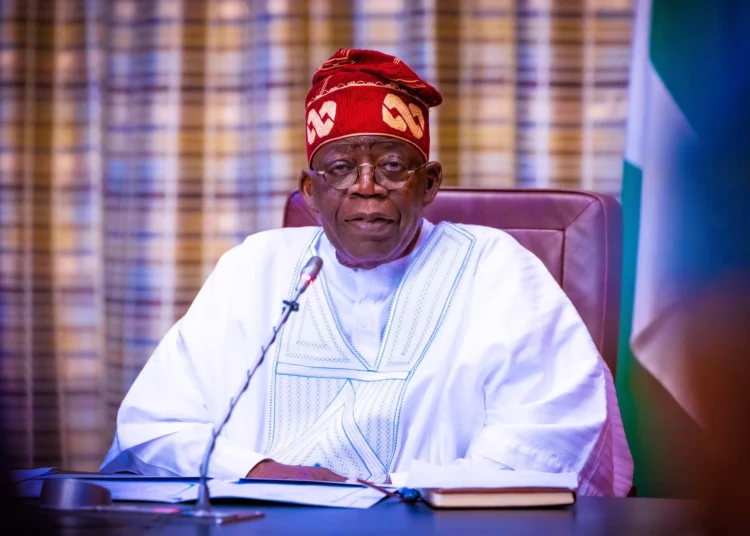In a country where the mere mention of the word “tax” sends shivers down the spine of market women, artisans, and even blue-chip CEOs, President Bola Tinubu has done the unthinkable – he made tax reform sound like a national rebirth. At the State House on Thursday, he signed into law four new tax bills that could reshape Nigeria’s fiscal architecture for a generation.
Big claims? Yes. But if you listened closely to the speeches from the President, Senate leadership, the Nigeria Revenue Service (NRS), and the reform committee, you’d understand that this was a deliberate attempt to fix something deeply broken: our convoluted, outdated, and underperforming tax system.
Let’s be honest – tax in Nigeria has long been more of a threat than a tool. For years, it’s been something most people feared, misunderstood, or outright dodged. Revenue authorities operated like toll collectors at best and task force bullies at worst. The result? An over-reliance on crude oil revenue and a chronically weak tax-to-GDP ratio that embarrassed even our neighbours.
Enter the Tinubu administration, with a sweeping overhaul packaged in four ambitious laws: the Nigeria Tax Bill (Ease of Doing Business), the Nigeria Tax Administration Bill, the Nigeria Revenue Service (Establishment) Bill, and the Joint Revenue Board (Establishment) Bill. If these names sound heavy, it’s because they are – but their purpose is simple: harmonise tax laws, improve administration, promote transparency, and ultimately raise revenue in a way that doesn’t suffocate productivity.
One major highlight is the rebirth of the Federal Inland Revenue Service (FIRS). It’s now the Nigeria Revenue Service (NRS), a rebranded, restructured agency with more autonomy, a broader mandate, and a performance-driven operating model. According to Zacch Adedeji, the NRS chairman, this move represents not just a name change but a mindset shift. “Two hours ago, we were FIRS. Now we are the Nigeria Revenue Service,” he declared, visibly elated.
But let’s pause and ask: is a new name and legal framework enough?
As Taiwo Oyedele, chairman of the Presidential Committee on Fiscal Policy and Tax Reforms, rightly noted, laws, no matter how transformative, mean little without proper implementation. This is the elephant in the room. Nigeria doesn’t suffer from a shortage of good policies; it suffers from execution anaemia.
The good news is that the implementation clock doesn’t start ticking immediately. The new laws will take effect from January 1, 2026, giving government agencies and stakeholders a six-month window to prepare. That’s both wise and necessary. Reforming an entire tax system isn’t like flipping a switch – it’s more like steering a ship through rocky waters. Everyone — from tax officers in rural local governments to corporate accountants in Lagos – needs to understand what’s coming.
And that’s where the challenge lies.
For this reform to succeed, it cannot be a government-only project. It must be a national conversation – inclusive, transparent, and rooted in trust. That’s easier said than done in a country where distrust of government motives runs deep and where previous tax reforms often translated to more paperwork, more confusion, and more extortion for ordinary Nigerians.
This time, however, the tone is different. Tinubu has positioned the reform not as a punishment but as a foundation for a “leaner, fairer Nigeria.” That’s a promising narrative – one that recognises that effective taxation is not about squeezing more out of the same people, but expanding the tax net, making compliance easier, and using the revenue to deliver real services.
It’s also worth noting that this isn’t just about tax – it’s about economic transformation. The President spoke about opening doors to a “new economy” and restoring global confidence in doing business in Nigeria. The implication? These laws are not just for the taxman – they’re for job seekers, investors, entrepreneurs, and the millions of informal sector players who just want to earn an honest living without being harassed by 10 different revenue agencies.
And let’s not forget the intergovernmental impact. One of the major features of the reform is improved coordination between federal, state, and local revenue authorities. For years, businesses have been victims of overlapping taxes and arbitrary levies. The Joint Revenue Board is meant to fix this – offering a formal structure for cooperation and clarity. If properly implemented, it could mean an end to the days of being taxed for simply existing.
Of course, it’s not all rosy yet. Scepticism remains – and rightly so. Many Nigerians have heard similar reform promises before. They’ve been told taxes would be used to fix roads, build hospitals, and support SMEs – only to be met with potholes, empty clinics, and collapsing businesses.
So, while the laws are commendable, the true test is not in the signing ceremony. It’s in the months ahead – in how these laws are communicated, enforced, and monitored. It’s in how revenue officials treat citizens. It’s in how public funds are used. It’s in how leadership leads by example.
Still, for a government that has been criticised for many things – from subsidy removal pains to currency devaluation shockwaves – this is one reform that deserves credit. It’s bold, well-conceived, and long overdue. If it lives up to its promise, it could be one of the most impactful legacies of the Tinubu administration.
But for that to happen, every arm of government – and indeed every Nigerian – must treat this not just as a technical tax reform, but as a national economic revival strategy. One that brings accountability, predictability, and – hopefully – prosperity.
So yes, tax is still a scary word in Nigeria. But maybe, just maybe, this time, it might also be a hopeful one.




